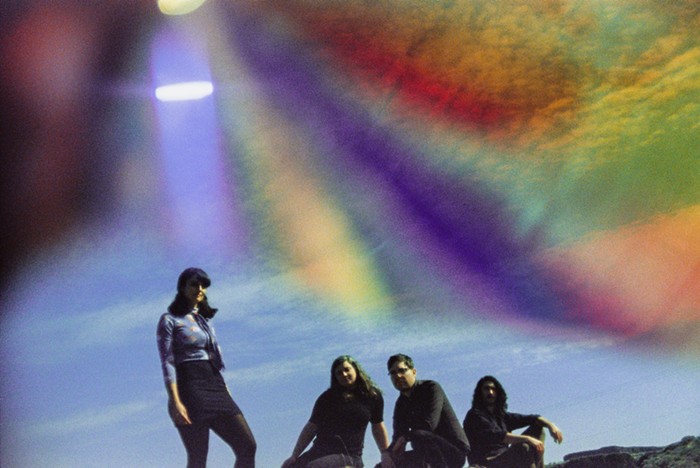Prefuse 73 is from Atlanta, Georgia, and his hiphop education took place within the studio system that produces Southern hiphop, but with the possible exception of one track, "Life/Death," there is nothing on Vocal Studies & Uprock Narratives that sounds remotely similar to, say, the Goodie Mob, or Outkast, or any of the dirty bands signed to the Def Jam South label.
To begin with, Prefuse 73 primarily makes instrumentals, and in this respect he has more in common with DJs and producers across the Atlantic, like DJ Goo, Herbalizer, and Kid Loco. In fact, the French DJ Kid Loco, who, like Herren, goes between post-rock, ambient, and hiphop, appears to be Prefuse 73's European double. But the comparison works only on the level of labels, practices, and procedures, and not, more significantly, at the level of the actual music itself.
Prefuse 73 is funkier than his European counterparts. He is not intellectual or theoretical or smart or even classy; all of his songs, though fuzzy and fitful, never "sway far from the dance," as Ezra Pound once put it in another context. His instrumentals do utilize rap vocals but they are scratched, sliced, and manipulated for their effect rather than meaning. When he does work with a rapper (or rappers), it's always with excellent results, which is certainly not the case with European DJs. In fact, one of the best rap songs of 2001 was "Blacklist," which is on Vocal Studies and features the impeccable gloom of MF Doom ("I can stop anytime I want to/Famous last words that came back to haunt you/All your life like permanent dry tears") and the existential desperation of Aesop Rock ("I got them shook by exposing their skeletons").
Though very few doubt Prefuse 73's hiphop genius, many criticize the delight with which he chops up rap vocals into rhythmic shards, thus reducing the presence and ego of the rapper to a mere vocal study. This is a thorny issue because Prefuse 73 is white and the rap voices he manipulates are black. It would appear, then, that he is repressing the ontological and political will of the socially marginalized black rapper for the sake of aesthetic value.
But Prefuse 73's manic manipulations of the black voice constitute the final arrival of something that began with the rapper Rakim--particularly his song "Follow the Leader" (1987)--and was continued in the '90s with rappers like Das EFX and Freestyle Fellowship, that being a total preoccupation with the sound and textures of rapping. Before Rakim, meaning was firmly established above the texture and grain of the voice; after Rakim, the opposite increasingly became the case. Rakim exploded the confines of the rap couplet by fucking with the pace and the spacing of his rhymes in a manner approximating the intensity of a bebop saxophonist. What Rakim inaugurated finds its conclusion in Prefuse 73, whose rap vocals function as pure instruments. (Indeed, one of the rappers featured on Vocal Studies is Mikah 9, a former member of Freestyle Fellowship--a mid-'90s L.A. band that blended hiphop with rap vocals that sounded like jazz instruments.)
But what is truly original about Prefuse 73's hiphop are the electronic noises that blissfully stutter, slip, and fall from the beats like showers of sparks. Prefuse 73's fascination with the electronic sounds of little machines recalls another era of hiphop, the early New York electro (1981 to 1984) made by DJs and bands like Mantronix, Man Parrish, and Newcleus. But Mantronix's machines were cold and rigid, whereas Prefuse 73's are warm and fuzzy. And in our jaded age, a time when machines have infiltrated every part of our lives, it's strange to find in songs like "Radio Attack" and "Smile in Your Face" machines whose warmness is drawn from the light of dawn and not that of the dusk.



















